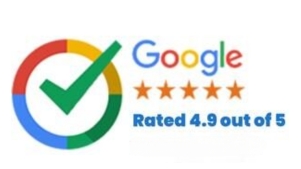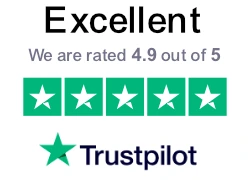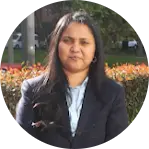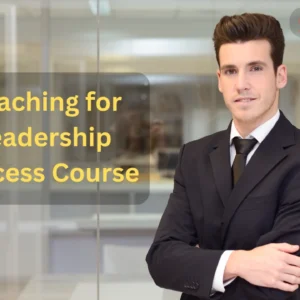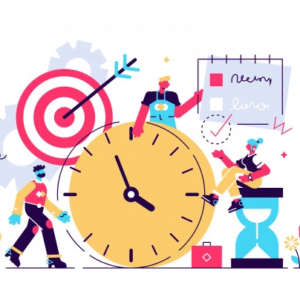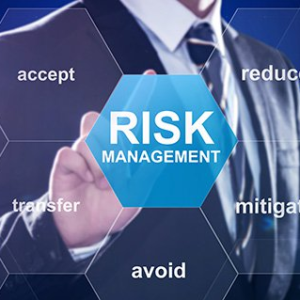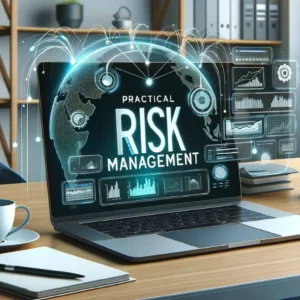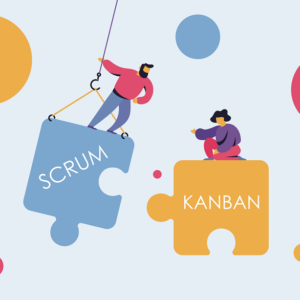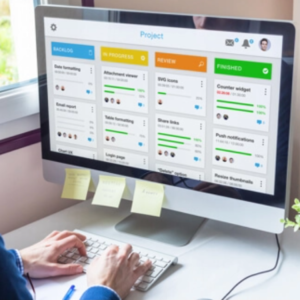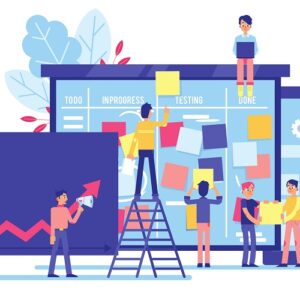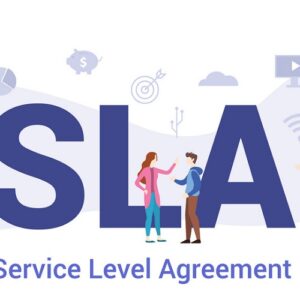Are workplace conflicts draining your team’s productivity and morale? Do you want to master effective conflict resolution strategies to foster a positive and collaborative work environment?
This expert-led Conflict Management for Managers course is designed to equip you with the essential skills to navigate workplace conflicts with confidence. Whether you’re a Senior manager, Team leader, or Business owner, this course will provide you with practical conflict resolution techniques, real-world case studies, and proven strategies to handle disputes effectively.
Don’t let unresolved conflicts disrupt your workplace—enroll today and take charge of conflict resolution with confidence!
Talent Triangle Distribution - 10 PDUs
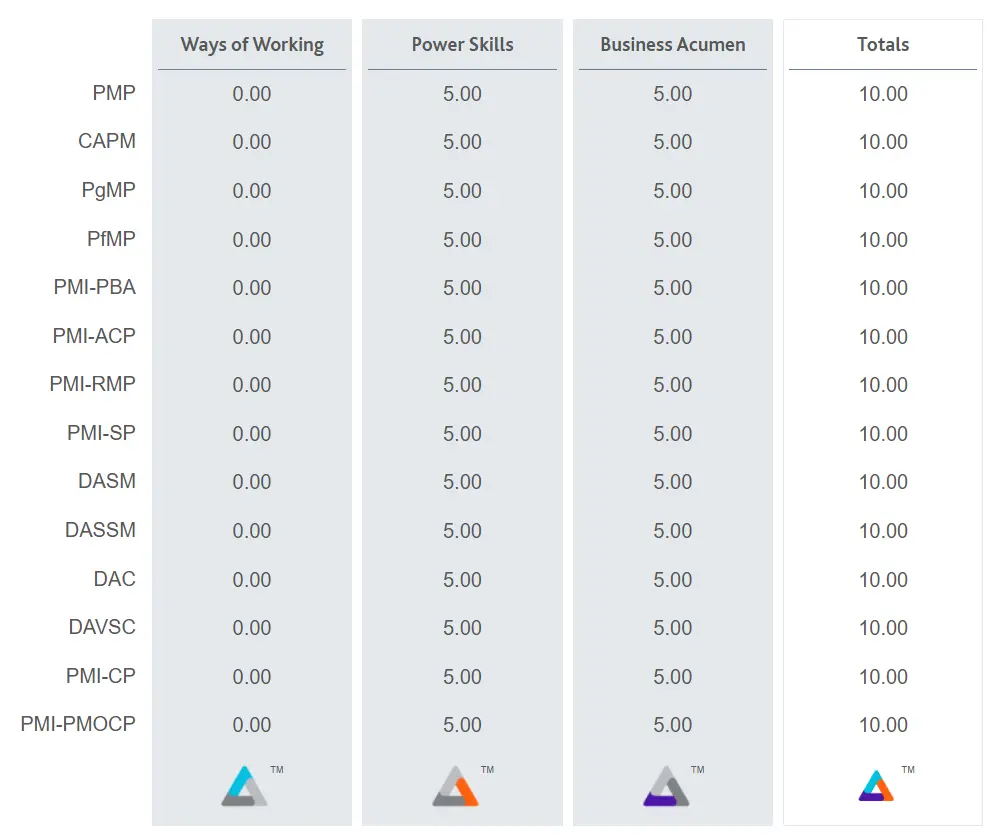
Course Syllabus
- Engaging on-demand video content
- Real-life Case-studies & Examples
- Access to tools
- 21 comprehensive lessons
- Quizzes and Assessments
- 31 Downloadable Resources
🌀 Unlock the Secrets to Conflict Management Success
Begin your journey with a strong foundation in conflict management. Explore key concepts, assess your personal conflict-handling style, and summarize best practices to confidently navigate workplace disputes.
🎯 Outcome:
- ✅ Identify core principles of effective conflict management.
- ✅ Assess your own conflict-handling style with clarity.
- ✅ Summarize best practices to apply in real-world scenarios.
📌 Proof of Work / Assessment / Assignment:
- Self-Assessment: Conflict Handling Style – Complete a worksheet to evaluate your personal approach to conflict, submit for self-reflection insights, and identify areas for growth.
📂 Supporting Documents:
- 📑 Conflict Management Overview – Comprehensive guide covering key concepts of conflict management.
- 📑 Conflict Management Summary & Best Practices – A summary guide highlighting key learnings and actionable strategies.
🌀 Navigate Conflict in the Workplace with Confidence
Dive into the essentials of workplace conflict, exploring the differences between task and affective conflicts. Learn to spot early signs and build a strong foundation for managing tensions effectively.
🎯 Outcome:
- ✅ Identify task and affective conflicts in workplace scenarios.
- ✅ Recognize early warning signs of conflict escalation.
- ✅ Develop a proactive approach to addressing workplace tensions.
📌 Proof of Work / Assessment / Assignment:
- “Identifying Signs of Conflict” – An exercise for managers to recognize affective and task conflicts, completed by analyzing provided scenarios and submitting observations for review.
📂 Supporting Documents:
- 📑 “Types of Workplace Conflicts” – A guide explaining task and affective conflict in the workplace.
🌀 Healthy vs. Unhealthy Conflict: Understanding the Difference
Dive into the dynamics of workplace conflict by distinguishing between healthy and unhealthy types. Explore how to assess conflict within a team and reflect on your own reactions to build stronger, more productive relationships.
🎯 Outcome:
- ✅ Identify traits of healthy versus unhealthy conflict in team settings.
- ✅ Assess personal responses to conflict for improved self-awareness.
- ✅ Diagnose team conflicts effectively to foster collaboration.
📌 Proof of Work / Assessment / Assignment:
- Healthy vs. Unhealthy Conflict Assessment – A worksheet for diagnosing and differentiating conflicts in a team, submitted for review.
- Self-Reflection on Conflict Reactions – An exercise to assess personal responses to conflict, completed with a short written reflection.
🌀 Resolving Style Differences in Conflict Management
Dive into understanding and resolving style differences that spark team conflict. Explore tools and strategies to identify working styles, analyze their impact, and adapt effectively for smoother collaboration.
🎯 Outcome:
- ✅ Recognize how style differences contribute to team conflict.
- ✅ Assess your own and others’ working styles using proven frameworks.
- ✅ Apply practical strategies to adapt and bridge style gaps in teams.
- ✅ Build a foundation for reducing friction caused by diverse approaches.
📌 Proof of Work / Assessment / Assignment:
- “Style Differences Assessment” – Complete a tool to identify and understand your working style and those of your team members. Submit a short summary of findings.
- “DISC or Myers-Briggs Style Analysis” – Analyze your personal style and one team member’s style using a worksheet, identifying potential conflict points.
- “Reflection on Style Adaptation” – Submit an assignment reflecting on a real or hypothetical scenario where you adapted your style to improve team dynamics.
📂 Supporting Documents:
- 📑 “Key Drivers of Team Conflict” – Overview guide on style differences, trust issues, individual vs. team goals, and change.
🌀 Building and Maintaining Trust Syllabus
Kick off your exploration of trust in teams with essential insights into its types and importance. Learn how to assess and strengthen trust levels within your team, and reflect on your personal role in fostering a trusting environment.
🎯 Outcome:
- ✅ Understand different types of trust and their impact on team dynamics.
- ✅ Evaluate trust levels within your team using a structured checklist.
- ✅ Reflect on and improve your personal contribution to team trust.
📌 Proof of Work / Assessment / Assignment:
- Trust Assessment Checklist – Complete a checklist to assess trust levels within your team, submitting your findings for review.
- Personal Trust Reflection – Submit a written reflection on how you contribute to trust, identifying one actionable improvement.
📂 Supporting Documents:
- 📑 Building Trust in Teams – A guide covering different types of trust and their importance in teams.
🌀 Aligning Individual and Team Goals
Dive into strategies for harmonizing personal ambitions with team objectives. Explore practical tools and real-world scenarios to address and resolve conflicts arising from misaligned goals, ensuring team cohesion and productivity.
🎯 Outcome:
- ✅ Map individual goals to team priorities effectively.
- ✅ Analyze and resolve goal-related conflicts with clarity.
- ✅ Strengthen team alignment through structured approaches.
📌 Proof of Work / Assessment / Assignment:
- Conflict Case Study on Goal Alignment – Analyze a case study on handling conflicts due to misaligned goals, submit a written resolution plan, and receive feedback on your approach.
📂 Supporting Documents:
- 📑 Individual vs. Team Goals Mapping – A worksheet to help align individual and team objectives.
🌀 Managing Conflict During Change or Ambiguity
Dive into strategies for handling conflict in dynamic, uncertain environments. Explore how stress impacts behavior and learn practical approaches to manage ambiguity and maintain team stability during change.
🎯 Outcome:
- ✅ Identify personal stress reactions and their impact on conflict.
- ✅ Apply strategies to navigate ambiguity and reduce tension in VUCA settings.
📌 Proof of Work / Assessment / Assignment:
- Identifying Stress Reactions – An exercise to reflect on personal stress reactions during change, submitted as a self-assessment.
📂 Supporting Documents:
- 📑 Managing Conflict in VUCA Environments guide (explains stress behaviors and strategies for managing ambiguity).
🌀 Mastering Assertive Communication in Conflict
Dive into the essentials of assertive communication to navigate workplace conflicts effectively. Explore conflict styles, assess your assertiveness, and learn how to express yourself confidently while maintaining professionalism.
🎯 Outcome:
- ✅ Identify your default conflict handling style and its impact.
- ✅ Develop assertive responses to conflict situations.
- ✅ Understand when and how to apply different conflict positions.
📌 Proof of Work / Assessment / Assignment:
- Assertiveness Self-Assessment – Complete a worksheet to evaluate your assertiveness levels in conflict situations and reflect on areas for improvement.
- Conflict Position Identification – Use the worksheet to assess your default conflict handling style and submit a brief summary of insights gained.
📂 Supporting Documents:
- 📑 Five Conflict Positions Explained – An in-depth guide explaining conflict styles and their strategic applications.
🌀 Enhance Cooperation in Workplace Conflicts
Dive into practical strategies for fostering cooperation during workplace conflicts. Build skills to navigate tense situations collaboratively and turn challenges into opportunities for team growth.
🎯 Outcome:
- ✅ Develop effective cooperation techniques for resolving workplace conflicts.
- ✅ Strengthen team dynamics through collaborative problem-solving.
- ✅ Build confidence in managing disputes with a cooperative approach.
📌 Proof of Work / Assessment / Assignment:
- Cooperation Strategy Practice – An exercise to develop and apply cooperation skills in simulated workplace conflict scenarios, with feedback provided on approach and effectiveness.
🌀 Mastering De-escalation in Conflict
Dive into proven techniques for calming tense conversations and resolving conflicts effectively. Learn how to assess situations quickly and apply strategic approaches to de-escalate workplace disputes with confidence and clarity.
🎯 Outcome:
- ✅ Identify the best approach to resolve conflicts using structured decision-making.
- ✅ Apply practical de-escalation techniques to diffuse tense situations.
- ✅ Enhance skills in maintaining composure and professionalism during conflicts.
📌 Proof of Work / Assessment / Assignment:
- De-escalation Techniques Practice – An exercise to practice techniques for calming tense conversations, with scenarios to apply and reflect on outcomes.
📂 Supporting Documents:
- 📑 Conflict Resolution Decision Tree – A tool to help managers determine the best conflict resolution approach.
🌀 Reaching Agreement in Group Conflicts
Dive into practical strategies for resolving conflicts within teams and across departments. Explore real-world scenarios, role-play solutions, and develop actionable plans to turn group disputes into opportunities for collaboration and growth.
🎯 Outcome:
- ✅ Analyze and resolve multi-departmental conflicts effectively.
- ✅ Practice facilitating group conflict resolution with confidence.
- ✅ Create structured plans to address and prevent team disputes.
- ✅ Apply case study insights to real-world group conflict scenarios.
📌 Proof of Work / Assessment / Assignment:
- Role-Playing Conflict Scenarios – An assignment to practice resolving different conflict situations.
- Group Conflict Resolution Role Play – A practical assignment for simulating group conflict resolution.
📂 Supporting Documents:
- 📑 Managerial Conflict Resolution Scenarios – A collection of real-world case studies on managing team conflicts.
- 📑 Departmental Meeting Conflict Resolution – A case study on resolving multi-departmental conflicts.
- 📑 Conflict Resolution Action Plan Template – A structured template for planning conflict resolution strategies.
🌀 Resolving Conflict Between Two People
This module focuses on strategies and practical exercises to resolve conflicts between individuals effectively. Through frameworks and role-play, you will gain hands-on experience in conflict mediation.
🎯 Outcome:
- ✅ Apply a step-by-step framework for resolving one-on-one conflicts.
- ✅ Practice mediation skills in a controlled role-play scenario.
- ✅ Gain insight into managing interpersonal disputes with a balanced approach.
- ✅ Develop negotiation skills for finding mutually beneficial solutions.
📌 Proof of Work / Assessment / Assignment:
- Conflict Mediation Role-Play – Engage in a simulated conflict resolution session between two individuals, applying the framework learned. Submit a recording or reflection on the mediation process for feedback.
📂 Supporting Documents:
- 📑 Framework for Resolving One-on-One Conflicts – A step-by-step guide outlining the process of resolving conflicts between two people, highlighting key techniques and strategies.
Why This Course is Right for You:
- Improve Your Leadership: As a manager, the way you handle conflict directly impacts team morale and productivity. This course provides you with the tools to handle even the most challenging situations with confidence and empathy.
- Enhance Team Collaboration: Conflict, if addressed properly, can foster new ideas, collaboration, and problem-solving. You’ll learn how to promote open communication and cooperation within your team.
- Resolve Conflicts More Effectively: Whether it’s a small disagreement between colleagues or a larger team dispute, you’ll be prepared to manage and resolve issues effectively to maintain a harmonious and productive work environment.
- Adapt to Different Conflict Situations: Learn how to recognize the underlying causes of conflict and choose the right resolution strategies for each unique situation.
- Boost Your Emotional Intelligence: Develop key interpersonal skills such as active listening, empathy, and emotional regulation to better manage conflict and build trust within your team.
Who Should Enroll:
Managers & Team Leaders
Learn how to handle team conflicts effectively and foster a positive work culture.
Founders & Entrepreneurs
Understand how to resolve conflicts among employees and stakeholders for smooth business operations.
Project Managers
Master conflict resolution techniques to keep projects on track and improve team collaboration.
Aspiring Leaders & Professionals
Build leadership skills and emotional intelligence to manage workplace challenges with confidence.
Supervisors & Department Heads
Gain strategies to address conflicts proactively and maintain high team performance.
What You’ll Learn:
✔ In-Depth Conflict Management Training: Learn about different types of conflict, conflict styles, and how to resolve conflicts in various scenarios.
✔ Practical Tools and Techniques: Discover proven methods for handling conflicts, including the Thomas-Kilmann Conflict Mode Instrument, de-escalation techniques, and strategies for assertive communication.
✔ Real-World Case Studies: Apply your learning through real-life scenarios and role-play exercises to strengthen your conflict resolution skills.
✔ Self-Assessment Tools: Identify your default conflict style and gain insights into how you can adapt it for better management.
✔ Conflict Styles Overview: Understand the five main conflict positions—competing, accommodating, collaborating, compromising, and avoiding—and learn when each is most effective.
✔ Strategies for Healthy Conflict: Learn how to turn conflicts into opportunities for growth, creativity, and innovation within your team.
Course Outcomes
By the end of this Conflict Management for Managers course, you will be able to:
- Identify Root Causes of Conflict: Recognize and address underlying issues before they escalate.
- Apply Proven Strategies: Use tools like the Thomas-Kilmann Conflict Mode Instrument for effective resolution.
- Enhance Team Trust & Collaboration: Foster an environment where healthy conflict drives better ideas and outcomes.
- Communicate Assertively: Learn de-escalation techniques and assertive communication to handle tense situations.
- Turn Conflict into Opportunity: Navigate change-related disputes and align individual and team goals for shared success.
- Earn a Certificate of Completion to enhance your professional credentials and career prospects.
Course Requirements & Prerequisites
- No specific prior knowledge is required. A willingness to learn and actively engage with the course material will help you get the most out of it.


